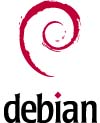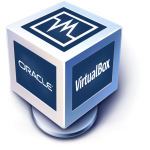How to change hostname in Alpine Linux?
 With the hostname command you can show or set/change the name of your host/server, hostname is part of the BusyBox suite.
With the hostname command you can show or set/change the name of your host/server, hostname is part of the BusyBox suite.
How to change hostname in Alpine Linux? Read More »
 With the hostname command you can show or set/change the name of your host/server, hostname is part of the BusyBox suite.
With the hostname command you can show or set/change the name of your host/server, hostname is part of the BusyBox suite.
How to change hostname in Alpine Linux? Read More »
In today’s post we are going to recommend which distro use, from the RHEL family, for office environments and which one for a business environment.
Which distribution to choose from the RHEL family? Read More »
File Browser is an elegant file browser and file manager for the web with the following features:
File Browser, a web file manager Read More »

Debian is a rock solid GNU/Linux distribution with more than 30,000 packages available in its official repositories. Debian is suitable for servers, workstations, mobile devices and embedded systems.
Debian has a simple and clean installation system which allows installing Debian with little effort as long as the number of installations to be executed is minimal, but as this number grows the installation procedure becomes cumbersome and tedious (Please note that during the installation process it is necessary to answer configuration questions and package selection), for example if we want to install Debian in a lab that has 15 workstations, we need to repeat this process 15 times, which is possible , but if we want to deploy Debian in mass, for example 100, 200, 500 or 1000 installations, it is no longer feasible, this is the reason why the Debian developers have created a system that allows automatic or unattended installations starting from a configuration file (preseed).
Unattended Debian installation Read More »

VirtualBox is a powerful virtualization product for x86 and AMD64/Intel64 architectures; It is features rich and performs very well on old hardware. Its source code is released under GNU General Public License (GPL v2). It can be installed on Windows, GNU/Linux and UNIX: Solaris, Macintosh, FreeBSD and allows a large number of client operating systems such as: Windows, GNU/Linux, Solaris and OpenSolaris, OpenBSD/FreeBSD/NetBSD.
VirtualBox, 16 practical examples Read More »
Long Answer: An operating system is a set of tools or software that you install on your computer or device and create a base system that allows you to extend its functionality by installing additional applications. In other words, an operating system is the minimum environment necessary to make your computer or device usable.
Is Linux an Operating System? Read More »

cron is a time-based job scheduler in Unix-like computer operating systems, cron is used to schedule jobs at fixed times, dates, or intervals; cron runs every minute and detects if there is a new command or task (reading the files /etc/crontab, /etc/cron.d/* and /var/spool/cron/crontabs/*) to run.
How to schedule tasks in GNU/Linux Read More »
If we want to “wake up” the computer at a certain moment, we can use the rtcwake command. rtcwake hibernates or suspends the system and to automatically wake from it at a specified time
Wake up your computer using rtcwake Read More »

mod_rewrite is a powerful and sophisticated Apache web server module that allows urls to be rewritten using regular expressions. To redirect the urls to the corresponding url with www in front.
How to redirect URL with Apache Read More »
Geany is a powerful, stable and lightweight text editor that has a modular architecture which allows to extend the basic functionality by selecting a set of plugins. It’s developed under GPL v2 license. Geany requires few space on hard disk, has few dependencies (not depends on KDE or GNOME libs)
Geany a lightweight text editor Read More »